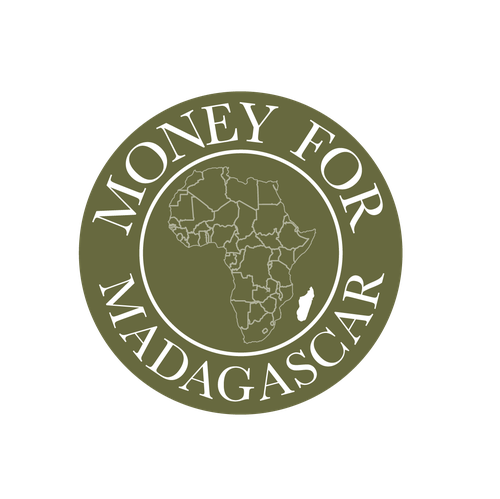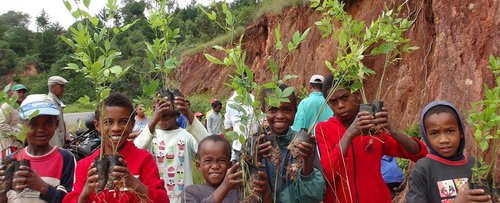Money for Madagascar

In her latest dispatch, Theresa Haine battles with bureaucracy, and some very long names!
After two years as headteacher I left Madagascar and the village of Imerintsiatosika. Place-names in Madagascar are often long and picturesque like so many in Wales. Imerintsiatosika means “Where the Merina people were not pushed” i.e. where they won a battle against a neighbouring tribe.
A girl in one of my classes was called Rasoloarinoronomenjanahary Lys, Florence, Lalanirina – we called her Lala! Her name meant Solo, given to us by God to console us for the loss of Noro. Other names are short and to the point such as the village called Beparasy which means “many fleas”!
I returned to the UK and spent a year teaching part-time in a primary school in Rugby while I swotted for the entrance exam to a one-year degree course for mature students in Leeds. Fortunately I managed to get a place and was able to remedy the gap in qualifications that made it necessary for me to hoodwink the Malagasy Education Department when I became headteacher in Imerintsiatosika. It was eleven years before I returned to Madagascar as one of the first trustees of a charity founded by a friend of mine from Swansea who had been a Quaker volunteer in Madagascar two years before me.

Things were going very badly in Madagascar in the 1980s. The President wanted to break the close connection with France, the ex-colonial power, and turned to the Soviet Union for support. As a result, the economy collapsed and poverty increased enormously, with actual starvation in the South.
We wrote to the big charities such as Oxfam and Save the Children but they were already overwhelmed with alleviating poverty in other countries and could not help at that time. My friend said to herself “If no one else can do something then I have got to do it”. So, with the help of the Swansea Quakers and great support from her husband (who had never been to Madagascar), she set up a charity and called it Money for Madagascar. This was because we felt that the Malagasy people knew exactly what needed doing and almost always knew exactly how to do it. What they lacked was funding. More about this and my part in it in the next episode.